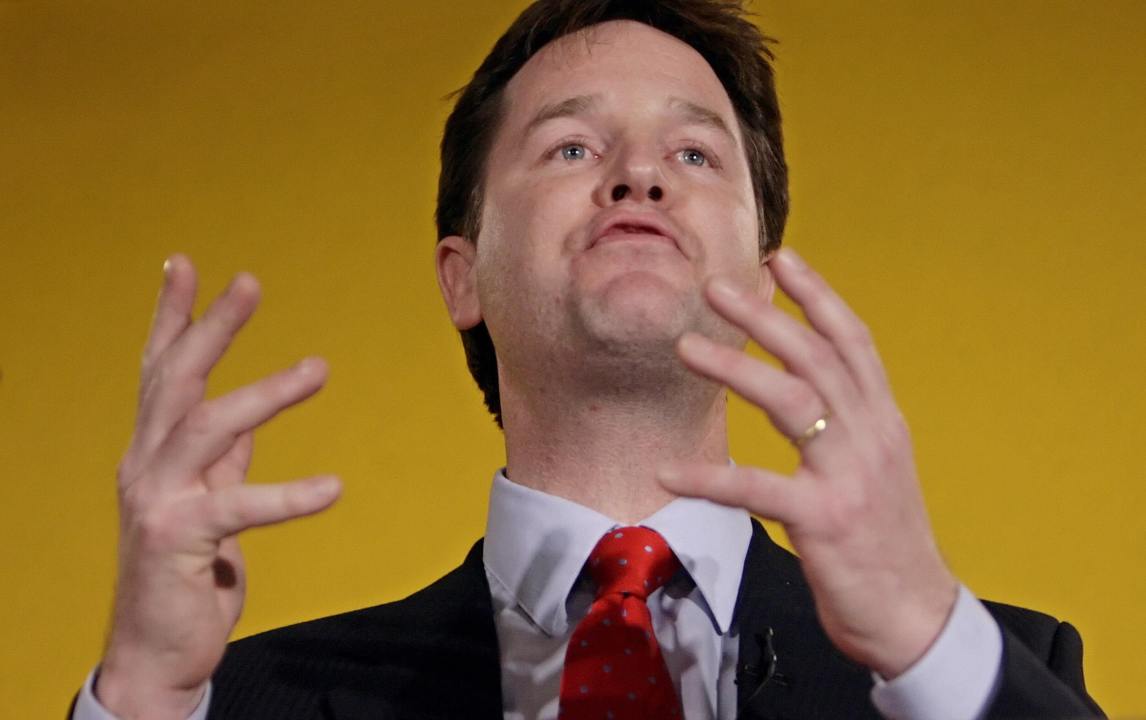 Nick Clegg’s giving a speech tonight in which he outlines the Lib Dem’s approach for dealing with the downturn. You can read the full thing here, but it’s centred around these passages on taxation and borrowing:
Nick Clegg’s giving a speech tonight in which he outlines the Lib Dem’s approach for dealing with the downturn. You can read the full thing here, but it’s centred around these passages on taxation and borrowing:
“How should Britain deliver economic stimulus? We hear talk of tax cuts emerging from Downing Street, but they are likely to be small, and short term. Funded through borrowing, the money will have to be paid back later. So it’s meagre tax cuts today, giant tax rises tomorrow from Brown.
Meanwhile the Conservatives want a piffling incentive for businesses to take on new workers that won’t put a penny in the pocket of a single family in Britain…
…Liberal Democrats would reduce basic rate income tax by 4p in the pound. That would give nearly £1000 back to a worker on £30,000 a year. Funded by four changes.
One: ending upper rate pensions relief – so the wealthy don’t get extra pension help from the tax man.
Two: taxing capital gains at the same rates as income. So bankers and executives can’t get away with paying 18% tax while their cleaners pay 31%.
Three: green taxes to protect our environment.
And four: tackling the scandal of corporate tax avoidance – a subject I’ll be addressing in a speech tomorrow.”
Now, there’s plenty in the Lib Dem proposals that I’m dubious of – the heavy leaning on business, for instance. But there’s a directness to their tax-cutting message that’s quite admirable. Let’s lower taxes for low and middle-income earners and let’s do it without imposing a debt burden on their children, they say – and rightly so. What’s more, they’ve been pushing this line for long enough that – rightly or wrongly – it doesn’t smack of opportunistic posturing as the recession bites. What Clegg is saying tonight isn’t substantially different from what Ming Campbell proposed in July last year. Now how’s that for consistency, Mr Brown?







Comments